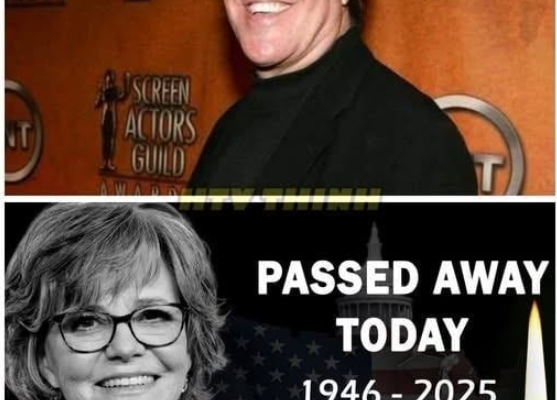Jeff Margolis: The Quiet Maestro Behind Television’s Most Iconic Moments
In the glittering world of television, where stars shine bright and red carpets gleam under flashing cameras, there exists a rare breed of genius whose work defines the moments we remember—but whose name rarely makes the headlines. One such figure is Jeff Margolis, the quiet maestro behind some of the most unforgettable live broadcasts in entertainment history. For decades, Margolis has shaped the way the world experiences television’s biggest events—from the Oscars to the Emmys and countless charity specials—masterfully orchestrating chaos into cinematic magic.
His story is not just about directing shows. It’s about vision, timing, and a deep understanding of how emotion and spectacle intertwine. If the actors are the heart of television, Jeff Margolis has long been one of its most vital pulses.
The Man Behind the Magic
Born in Los Angeles, Jeff Margolis grew up surrounded by the hum of Hollywood, but he never craved the spotlight. Instead, he was fascinated by what went on behind the scenes—the way multiple moving parts could come together to create a single breathtaking moment.
By his early twenties, he had already entered the entertainment world, starting modestly as a stage manager. But his sharp eye for detail, calm demeanor under pressure, and instinct for storytelling quickly caught the attention of industry veterans. It wasn’t long before Margolis was directing live television events, an arena where few dare to step because every second counts and every mistake goes out to millions.
His early credits included variety shows and televised performances, but it was his natural command of live broadcast timing that set him apart. In an industry that often rewards flash over substance, Margolis earned his reputation quietly—through precision, professionalism, and an uncanny ability to make everyone around him look their best.
Mastering the Live Broadcast
Directing a live awards show is one of the toughest jobs in television. Every camera angle, cue, and transition must be flawlessly timed. The energy in the room must be captured and conveyed to audiences at home without losing authenticity. For decades, Jeff Margolis did just that—with elegance and control.
He directed multiple Academy Awards ceremonies, Emmy Awards, Golden Globes, and American Music Awards, each time balancing grandeur with grace. When the curtain rose and Hollywood’s elite stepped into the spotlight, Margolis was the unseen conductor, orchestrating a symphony of lights, laughter, and emotion.
Actors, producers, and network executives often praised his composure. While others might panic when a teleprompter failed or a performer missed a cue, Margolis would calmly reroute cameras and signals in seconds. His motto was simple but powerful: “The audience should never feel the chaos. They should only feel the moment.”
Iconic Moments You Didn’t Know He Directed
Even if you don’t recognize Jeff Margolis’s name, you’ve almost certainly witnessed his work. Some of television’s most iconic live moments carry his invisible signature.
He was behind several legendary Academy Awards broadcasts, including those with unforgettable moments such as memorable acceptance speeches, live performances that became cultural milestones, and tributes that left millions teary-eyed. His direction made sure every emotion reached viewers at home exactly as intended—raw, real, and perfectly timed.
Margolis was also instrumental in producing and directing major charity events and televised concerts, including The Jerry Lewis MDA Labor Day Telethon and Stand Up to Cancer. These were not just broadcasts—they were national experiences that brought people together through shared emotion.
Each frame, each camera cut, each pause between applause was intentional. Margolis knew that television was not just about what people saw—it was about what they felt.
A Visionary with a Human Touch
Unlike many directors who focus solely on technical perfection, Jeff Margolis believed in humanity first. He had an extraordinary gift for connecting with talent—whether it was a nervous first-time presenter or an international superstar.
Those who worked with him often describe his demeanor as kind, encouraging, and deeply respectful. “Jeff never raised his voice,” said one longtime producer. “He didn’t need to. He had a calm authority that made everyone want to give their best.”
His ability to manage live tension while maintaining empathy made him a rare figure in a high-pressure industry. Actors trusted him; producers depended on him. And audiences unknowingly benefitted from his touch every time they tuned in to a flawlessly executed show.
The Art of Timing and Emotion
Directing live television is both art and science. It requires an almost musical sense of timing—a feel for rhythm, pacing, and emotional beats. Margolis’s background in stage production gave him an intuitive understanding of flow.
He knew when to hold a camera on a face just long enough for emotion to register. He knew when to cut to the crowd, when to fade the lights, and when to let silence speak louder than sound. In many ways, Jeff Margolis didn’t just direct broadcasts—he conducted feelings.
His shows were known for having a heartbeat. He created moments of levity when tension ran high, moments of poignancy when celebration risked feeling hollow, and moments of unity when the industry needed it most.
Mentor and Innovator
As television evolved, so did Margolis. From analog broadcasts to digital transitions, from single-camera setups to multicam digital systems, he adapted seamlessly, always keeping the audience experience at the forefront. Younger directors and producers often sought his mentorship.
He was generous with his time and wisdom, often saying, “Technology changes, but storytelling never does.” His approach was grounded in timeless principles: clarity, compassion, and connection.
Even after decades at the top of his field, Margolis remained curious. He kept learning, exploring, and pushing creative boundaries. For him, every new show was another chance to perfect the craft and celebrate the collaborative power of television.
Recognition and Legacy
Though he never chased fame, Jeff Margolis’s excellence did not go unnoticed. Over the course of his career, he earned numerous Emmy nominations and industry honors, as well as deep respect from peers across Hollywood.
Producers credit him for setting the gold standard for live event direction, while performers often cite his warmth and steady leadership as key to their comfort on stage. His name became synonymous with reliability, grace, and emotional impact.
But beyond the trophies and titles, Margolis’s greatest legacy lies in the moments he created—the gasps, the cheers, the laughter, and the tears shared by millions of viewers who never knew his name but felt his presence.
A Quiet Giant in a Loud Industry
In a business built on spectacle, Jeff Margolis stands out not for his volume but for his vision. He understood that true mastery isn’t about commanding attention—it’s about channeling it. Through decades of dedication, he helped shape television into more than entertainment; he turned it into a living, breathing experience that connects people across time zones and generations.
His artistry proves that sometimes, the most powerful voices are the ones you never hear. His name may not roll across the screen as the star, but his fingerprints are on every moment that made us feel something.
Final Thoughts
Jeff Margolis is a reminder that the greatest artists aren’t always the ones in front of the camera. They are the ones behind it—the visionaries who turn live moments into timeless memories.
From the grand stages of award shows to the quiet emotion of a charity performance, Margolis captured the soul of television itself: human connection. His career is a masterclass in grace under pressure, in the art of timing, and in the beauty of letting others shine.
In a world obsessed with fame, Jeff Margolis chose legacy. And that, perhaps, is his greatest masterpiece. 🎬✨


